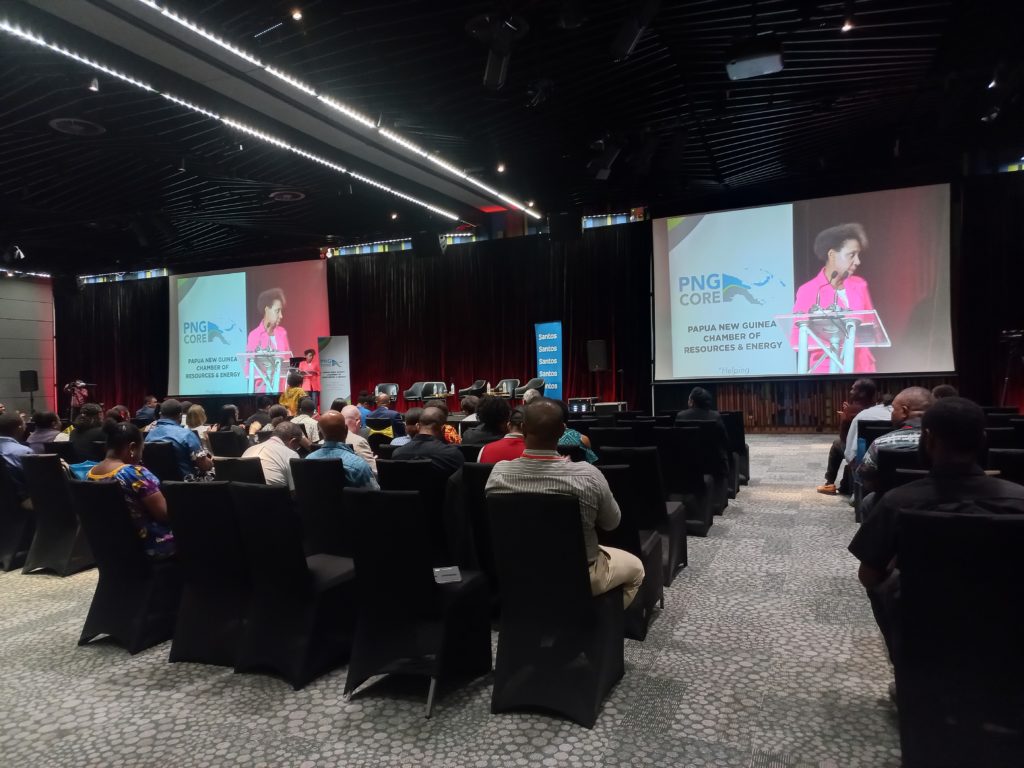SCHOOL OF COMMUNICATION AND DEVELOPMENT STUDIES PARTICIPATES IN INAUGURAL MEDIA SUMMIT
The Papua New Guinea University of Technology (PNGUoT) had the opportunity to participate in the Inaugural PNG Media Summit on the 3rd of May, through the School of Communication and Development Studies (SCDS).
The SCDS Head of School, Dr. Rachel Aisoli-Orake, was invited as one of the academic panelists to discuss the trends of technology and Artificial Intelligence (AI) in media education, and how universities are integrating these into their academic programs.
Dr. Aisoli-Orake highlighted that SCDS is more focused on training graduates who are effective communicators as mediators, community development officers, liaison, and communications officers with media and journalism being a small component—two subjects offered under the undergraduate program.

“The BACD program is not focused on journalism and media technology but on theories and models of communication and strategies in communication management. So, the use of technology in media is not part of the curriculum. However, our final-year students engaged in the journalism and media space are given opportunities to use various media technology tools.”
Dr. Aisoli-Orake highlighted the use of Learning Management Systems such as Google Classroom and Moodle, and the plagiarism detection tool, Turnitin, have been integrated into teaching and learning, and further added that PNGUoT has also developed its AI policy.
“The Summit created the opportunity for academics to inform the media industry about our academic programs. Additionally, we provided insights of our media practices and the concept of AI in our respective universities,” she said.
The Bachelor of Arts in Communication for Development is a home-grown degree program developed in the early 1990s during PNG’s mining boom. It was implemented in consultation with the PNG Chamber of Mines and tailored to address the need for liaison and community development officers, who act as middle persons in communicating disputes, issues, and concerns between indigenous landowners, foreign mining investors, and PNG government departments.
Dr. Aisoli-Orake said that with the benchmarking exercise currently underway, the SCDS program will be diversified.
“Through feedback from our school’s last Industrial Course Advisory Board and Professional Work Experiences (PWE) presentations by our final-year students, the school is considering diversifying into offering two degree programs: development studies and communication and media studies.”
“Although the BACD program is not focused on journalism and the media industry, some of our graduates have been employed in that space and have performed very well.”
Dr. Aisoli-Orake said it was a privilege to be part of the PNG Media Summit panel of academics, to inform the media industry about PNGUoT SCDS’s media studies subjects, their contents, and contributions to journalism and the media industry through the graduates of our BACD program.
The other panelists in the ‘Media Programs in Universities’ session included Divine Word University’s Head of Communication Arts (Journalism), Mr. Patrick Matbob, and the University of Papua New Guinea’s Director for Melanesian Arts and Culture, Dr. Michael Mel.
Dr. Aisoli-Orake also expressed gratitude to the PNG Media Council and Women in Media (WiM) for recognizing PNGUoT as an institution offering a communications program, as well as PNGUoT for supporting SCDS’s participation in the Inaugural PNG Media Summit.
